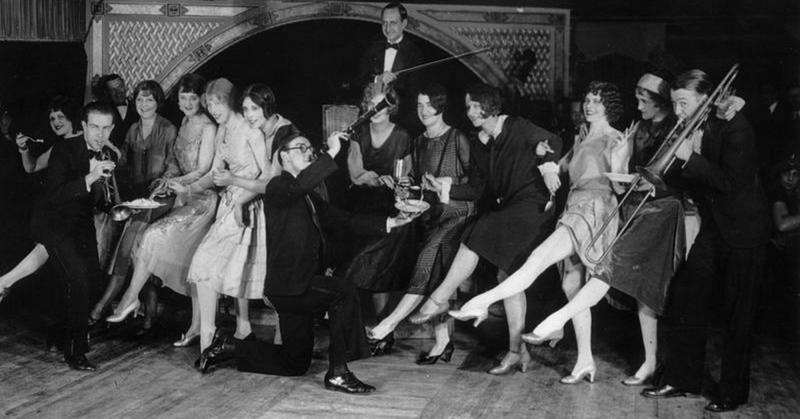Fun Facts About The Roaring '20s
By | August 8, 2022

The 2020s might have gotten off to a rocky start, but the 1920s were known for economic boons and social change that marked the beginning of the modern age. They had a roaring good time doing it, too.
Dresses Got Shorter
Long dresses has reigned supreme during the previous centuries in the Western world, but in the 1920s, ladies showed off their gams as hemlines rose dramatically with the advent of flapper dress. These "short" (often knee-length) dresses and skirts drew major criticism and were decried by many as indecent, but that did little to stop the spread of their popularity. After all, people had just survived the First World War and the horrific Spanish Flu pandemic that took the lives of millions, so they were much less concerned with propriety than living life to the fullest. Flappers were also notable for having short hair, openly drinking alcohol, dancing, and provocative petting parties.
Jazz Filled The Airwaves
Depending on who you ask, jazz originated in the late 19th or early 20th century, but most agree it was born in New Orleans and skyrocketed as a popular music genre during the 1920s. Jazz also coincided with the rise of recorded discs that allowed people to play music through a gramophone, making it easy to throw on the lively tunes at even small social gatherings. The home radio was also popularized in the late 1920s, giving popular bands like King Oliver's Creole Jazz Band even more opportunities to reach new listeners.

You Couldn't Drink (Legally)
As of January 17, 1920, the ratification of the 18th Amendment to the Constitution banned all sales, transportation, and manufacture of alcohol in the United States. Support for Prohibition largely came from temperance movements led largely by women who argued that alcohol destroyed family life, often through the husband's inability to hold down a job, illness, or sometimes even violence while under the influence. Business owners backed the women, hoping they'd see higher productivity among their workers and fewer accidents on the job, but it mostly only resulted in a huge spike in the illegal manufacture of alcohol, which in turn led to gang violence as criminals like Al Capone found opportunities in the speakeasy culture. Eventually, the temperance movement faded and state governments grew weary of enforcing the prohibition of something that seemed impossible to actually stamp out. Finally, in 1933, the 21st Amendment undid the 18th and President Franklin Delano Roosevelt celebrated with a dry martini of his own.

One Of Medicine's Greatest Advances (Was Made By Accident)
While everyone else was busy having a good time, scientist and researcher Alexander Fleming was studying the bacteria known as Staphylococcus, but he was a sloppy and careless researcher who must have been more focused on his upcoming holiday than his work, as he accidentally contaminated one of his petri dishes and left it out on a bench. After he returned from vacation several weeks later on September 3, 1928, he noticed a strange fungus on the contaminated dish that seemed to have destroyed the bacterium. The fungus was Penicillium, and from this culture, he eventually created the world's first antibiotic medication, which is estimated to have saved hundreds of millions of lives. For this, he and his colleagues won the Nobel Prize in Physiology or Medicine in 1945.

